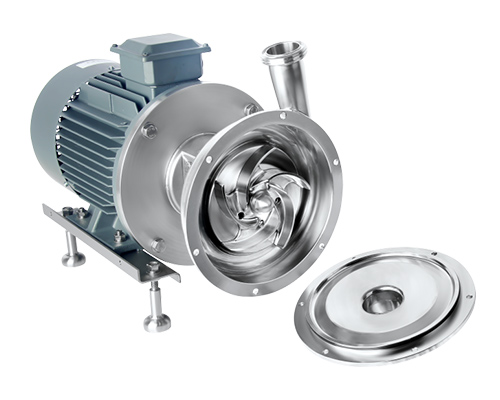Principle and Function of Mechanical Seals

Centrifugal pumps operate by utilizing the centrifugal force generated from the rotation of the impeller and fluid. Prior to starting a centrifugal pump, the pump casing and suction pipe must be fully primed with liquid. Once initiated, the motor drives the pump shaft, which in turn rotates the impeller at high speed. Under the influence of centrifugal force, the liquid is expelled to the outer edge of the impeller and flows through the volute channel of the pump casing into the discharge pipe. A vacuum is formed at the center of the impeller due to the expulsion of liquid, allowing atmospheric pressure to push more liquid from the suction reservoir into the pump casing. This continuous process enables the efficient transfer of liquid.

A mechanical seal refers to the use of mechanical methods to close the gap between two mating surfaces, thereby preventing fluid leakage. In various industrial applications, mechanical seals serve as critical components. The following sections will elaborate on the working principle, classification, and application scope of mechanical seals.
1. Working Principle of Mechanical Seals
The fundamental principle of a mechanical seal involves leveraging the pressure differential across the sealing surfaces to achieve an effective seal. When the medium enters the gap between the sealing surfaces, the existing pressure differential prevents it from leaking out. Additionally, friction between the sealing surfaces enhances the sealing performance, ensuring a stable and reliable sealing state.
2. Classification of Mechanical Seals
Mechanical seals are typically categorized into two main types: rotary seals and static seals. Rotary mechanical seals are predominantly used for sealing rotating shafts in equipment such as pumps and compressors. Static mechanical seals, on the other hand, are employed in stationary applications, such as valves and containers. Furthermore, mechanical seals can also be classified based on their structural design, including single-end seals, double-end seals, and others.
3. Application Scope of Mechanical Seals
Mechanical seals find extensive use across numerous industrial sectors. In the petrochemical industry, they are utilized to seal pumps and compressors, preventing the leakage of chemical media. In the food industry, mechanical seals ensure the hygiene and safety of food processing equipment. Additionally, they are widely applied in automotive, aerospace, and aviation industries, among others.
In summary, mechanical seals play a pivotal role as essential sealing components in various industrial fields. A comprehensive understanding of their working principles, classifications, and applications allows for their optimal utilization in practical production scenarios.


